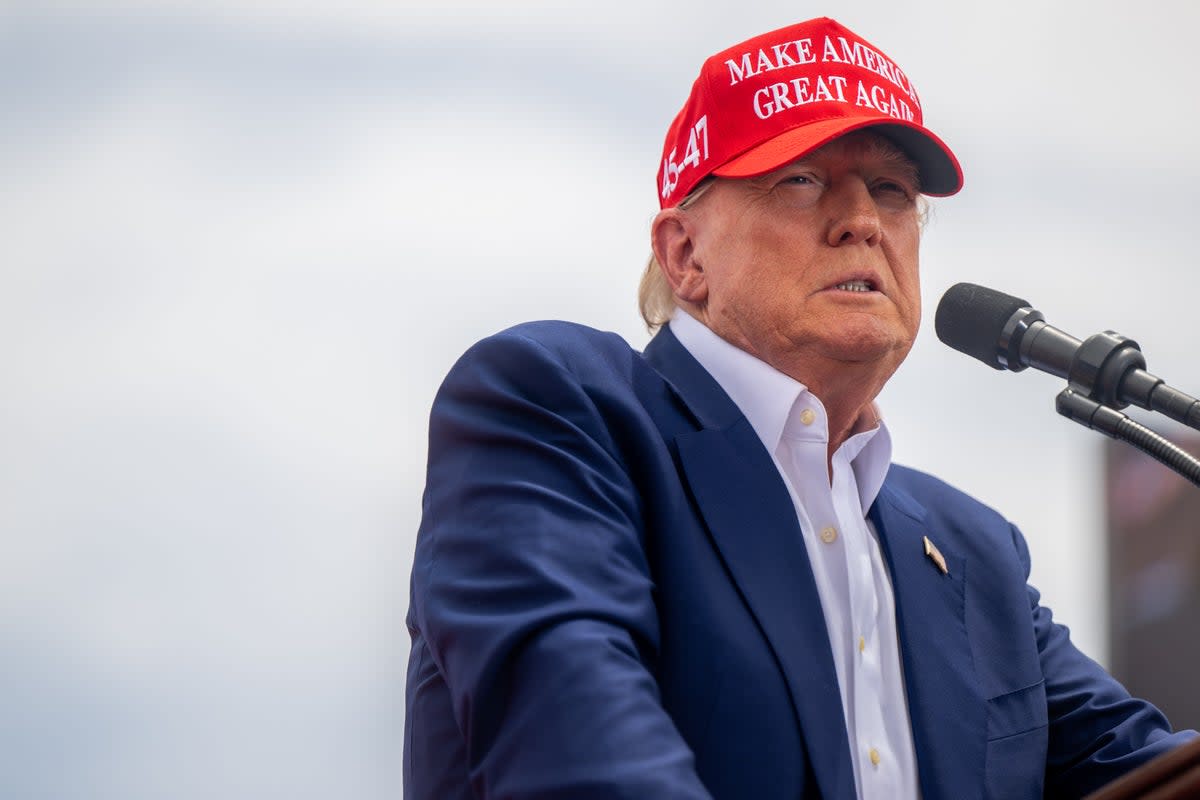Not every Republican is pleased to welcome Trump back to Capitol Hill

Two and a half years after he incited a deadly riot at the US Capitol and two weeks to the day since a jury in New York found him guilty on 34 counts, former president Donald Trump will be welcomed to Capitol Hill as the leader of the Republican Party.
When Trump first became the Republican presidential nominee the first time around, most Republicans on Capitol Hill feigned ignorance. Many said they would “support but would not endorse the nominee” when asked, conspicuously avoiding saying Trump’s name. When Trump won the presidency, many Republicans — like then-House speaker Paul Ryan — would tell reporters they hadn’t seen his tweets. And for a while after the January 6 riot, a brief moment existed where Republicans might have made Trump persona non grata.
Since then, many Trump-critical Republicans have either lost their races (Liz Cheney); announced their plans to retire, as is the case with Ryan and Mitch McConnell; or have died, as John McCain did in 2018.
In their place now are Republicans far more comfortable with Trump. Instead of Ryan, House Speaker Mike Johnson, who has forged a marriage of convenience with the former president, will welcome the twice-impeached, four-times-indicted Trump to the Hill on Thursday.
Ahead of the summit, Johnson joined Senate Republicans to talk about a potential agenda for the first 100 days of a second Trump term. Such an outcome is looking likely these days, given that Trump is beating Biden pretty consistently in polling.
“We would want to have a very vigorous agenda and make the most use of the time [when Trump is on the Hill],” Johnson told reporters on Wednesday.
Senator John Cornyn of Texas, who is in the running to replace Mitch McConnell, didn’t mince words about what he wants to hear from the former president this week: “What’s his plan to win?” Texas looks likely to stay Republican this cycle, but Trump’s takeover of the GOP, combined with the Dobbs v Jackson decision, which came as a result of Trump-nominated Supreme Court justices, has repelled the suburbs of places like Houston, Dallas and San Antonio. That puts Republicans like Cornyn and Ted Cruz in danger.
“I think we need to try to talk about what he's going to be talking about [on the campaign trail],” Cornyn added. “So [we can] hopefully have a unity message.”
Many other Republicans echoed those concerns about unity. Senator Chuck Grassley, who said in the past that Trump “displayed poor leadership in his words and actions” on January 6, had an agenda in mind.
“I think [the election will be determined by] the extent to which he emphasizes or doesn’t emphasize the two biggest issues in this campaign — open borders and inflation,” Grassley told The Independent.
Grassley received Trump’s endorsement ahead of his 2022 campaign largely on the back of his confirming Justices Neil Gorsuch and Brett Kavanaugh when he led the Senate Judiciary Committee. If Republicans win back the Senate, he could retake the gavel and help Trump further reshape the federal bench.
Senator Roger Marshall of Kansas, one of eight Republicans who voted to object to election results after the January 6 riot, told The Independent that he wants Republicans to overwhelmingly get behind the former president.
“I don't have a message for him, except I hope he feels the support the way a team would circle around their leader who maybe was being attacked by the press,” he said.
But that supportive team-like atmosphere is in no way guaranteed. Senator Susan Collins of Maine said she will not be attending Trump’s talk.
“I have a conflict that's long-standing,” she told The Independent.
While many liberals may roll their eyes at Collins rebuffing Trump, she was one of only a handful of Republicans who voted to convict Trump for his actions on January 6 and she voted against his efforts to repeal Obamacare. She is far from all talk.
Indeed, Collins might be an even bigger roadblock to Trump if he wins a second term, given that she’s now the top Republican on the Senate Appropriations Committee, the committee responsible for actually spending money to implement the president’s agenda. If Republicans retake the Senate, as they are expected to do, Trump might have to deal with the fact his biggest critic in the Senate will control his pocketbook.
